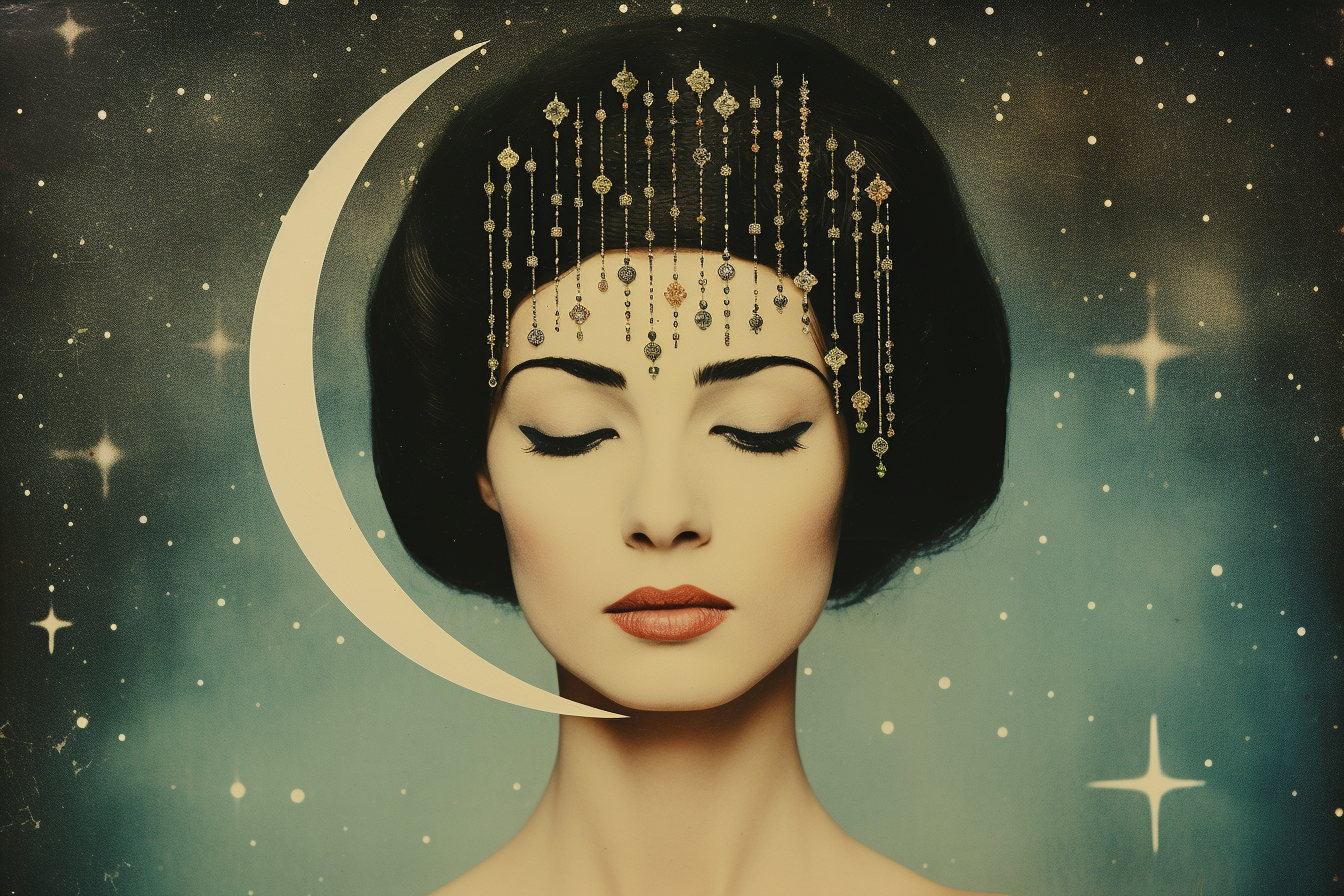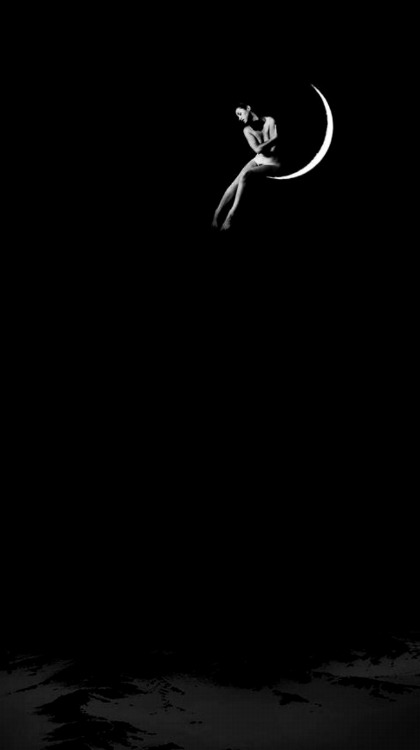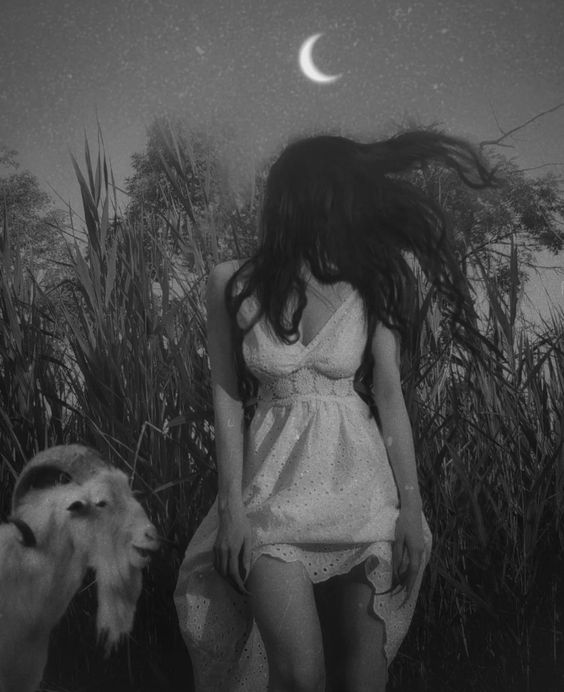 The Moon, in both celestial and metaphorical terms, holds a profound influence over our existence. It wields dominion over the very fabric of our lives, from the daily routines we follow to the passage of years that mark our journey through time. Its surface, a desolate yet captivating realm, bears witness to the eons of history, collecting and preserving the echoes of our emotions and memories. When we speak of the Moon’s activation, we delve into the mystical realm of its potential. This celestial body possesses an immense archive of experiences, a vast repository of moments and feelings that have imprinted themselves upon its surface. It can awaken these dormant recollections within us, effortlessly transporting us to days long gone by, manipulating our reminiscences, dreams, and the profound sense of belonging that ties us to the past.
The Moon, in both celestial and metaphorical terms, holds a profound influence over our existence. It wields dominion over the very fabric of our lives, from the daily routines we follow to the passage of years that mark our journey through time. Its surface, a desolate yet captivating realm, bears witness to the eons of history, collecting and preserving the echoes of our emotions and memories. When we speak of the Moon’s activation, we delve into the mystical realm of its potential. This celestial body possesses an immense archive of experiences, a vast repository of moments and feelings that have imprinted themselves upon its surface. It can awaken these dormant recollections within us, effortlessly transporting us to days long gone by, manipulating our reminiscences, dreams, and the profound sense of belonging that ties us to the past.
The Moon draws a sharp distinction between our conscious and subconscious minds, acting as a bridge to our memories, emotions, and our past. Within its silvery glow, it uncovers the deep wellsprings of our unconscious, the reservoirs of our feelings and reactions, and the very essence of our soul. Its phases unfold in the veil of night, revealing the most elemental facets of our being, including the unspoken needs that reside at the core of our psyche. Yet, some astrology practitioners suggest that the dark side of the Moon, hidden from our gaze, conceals a monstrous entity. This malevolent creature is said to feed on the life force of Earth, lurking in the shadows.
When the Moon gets activated, it’s like this ancient jukebox of memories and emotions. It can take us on a trip down memory lane, make us feel things we thought we’d forgotten, and connect us with a sense of belonging that’s as old as time itself. You see, the Moon, it’s like the gatekeeper between our conscious and subconscious minds. It’s where all our memories and emotions are stored, and it can unlock them with a flick of its celestial switch. It’s the keeper of our dreams, our feelings, and our past. No, no, it’s a symbol, a symbol of our innermost selves. It’s all about our unconscious, our feelings, our gut reactions, and the very essence of who we are. And here’s the kicker – it does all of this under the cover of night, revealing the deepest, most essential parts of our psyche.And you know what? Some astrologers, they’ve got this wild idea that the dark side of the Moon – yeah, the side we can’t see – well, they say it might just be home to some colossal, life-sucking beast. I mean, it’s probably just a tall tale, right? But it shows you how the Moon has this aura of mystery and power, even in the realms of astrology.
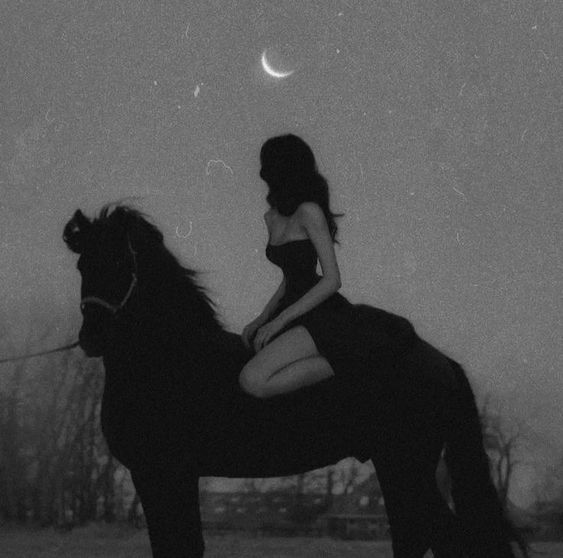 The Moon, that enigmatic luminary in our night sky, casts a shadow of profound influence over our lives, particularly during the nascent stages of our existence. In many respects, its power surpasses that of the radiant Sun. It serves as a celestial mirror, reflecting not only the silvery light of its solar companion but also the depths of our souls. At the outset of our life’s journey, the Moon bestows upon us a unique insight into our origins and the places that eternally resonate as our homes. It is as though it holds the key to a vault of memories, a treasure trove of experiences. The past unfolds before us like a timeless film on constant replay, allowing us to revisit and cherish our history. This is the Moon’s domain, as the queen of our former selves, she reigns over the specters of bygone eras, vividly etched in the history of our souls. Yet, the Moon is not an emotionless observer of our inner world. Beneath its serene, silvery surface, it conceals a profound yearning for love and acceptance. It craves the warmth of belonging to a close-knit group, a sense of emotional security akin to the gentle embrace of moonlight. This longing often drives us to seek out connections and form bonds with others, as we yearn for the comforting presence of a lunar family.
The Moon, that enigmatic luminary in our night sky, casts a shadow of profound influence over our lives, particularly during the nascent stages of our existence. In many respects, its power surpasses that of the radiant Sun. It serves as a celestial mirror, reflecting not only the silvery light of its solar companion but also the depths of our souls. At the outset of our life’s journey, the Moon bestows upon us a unique insight into our origins and the places that eternally resonate as our homes. It is as though it holds the key to a vault of memories, a treasure trove of experiences. The past unfolds before us like a timeless film on constant replay, allowing us to revisit and cherish our history. This is the Moon’s domain, as the queen of our former selves, she reigns over the specters of bygone eras, vividly etched in the history of our souls. Yet, the Moon is not an emotionless observer of our inner world. Beneath its serene, silvery surface, it conceals a profound yearning for love and acceptance. It craves the warmth of belonging to a close-knit group, a sense of emotional security akin to the gentle embrace of moonlight. This longing often drives us to seek out connections and form bonds with others, as we yearn for the comforting presence of a lunar family.
However, the Moon’s influence is not without its vulnerabilities. In the shadowed corners of our psyche, it fosters a sense of uncertainty that can give rise to timidity and fear. When this uncertainty takes hold, it can lead us down irrational paths, causing us to act out of a pervasive unease. We may make choices that defy logic, driven by an instinctual need to protect the fragile emotional terrain of our lunar selves.
The Moon, that mystical, ethereal ball of wonderment hanging up there in the night sky. It’s got a certain power, a different kind compared to that big, blazing Sun. The Moon, it’s the ultimate nostalgia trip. It’s like scrolling through your own personal memory reel. It’s got this uncanny ability to make you feel connected to your roots, to those places that make you go, “Yeah, that’s home.” It’s hitting the rewind button on your soul, reliving the past in vivid detail. The Moon, it’s got this deep connection with our roots, with where we come from, the places that make us feel all warm and fuzzy inside, like home. And it’s like the queen of our inner ghosts, those times from the past that are still etched into our very souls. It’s like, “Hey, remember that time when you got your heart broken? Yeah, I got that on replay.”
Compacting Time says,
Memory works strangely on the passage of time, however, for to remember is to make past moments present. If time’s passage is like a line, then memory bends the line into a circle, or rather into a spiral, for we know very well that when we revisit the past in memory we are not in the past but have only made the past present for a while. And we know that our reliving of the past is imperfect: we have forgotten some of the details, or repressed them, or polished them up with the glamour of delusion, hope, or love…Memories are imprecise and conceptual, faded not lived; the experience of an art work corrects these limitations. So does the apprehension of a ghost, and so too do dreams where the encounter with revenants most often occurs. Thus dreams—which typically also offer rooms or landscapes in which the repeated, beloved past can be enacted. Compacting time
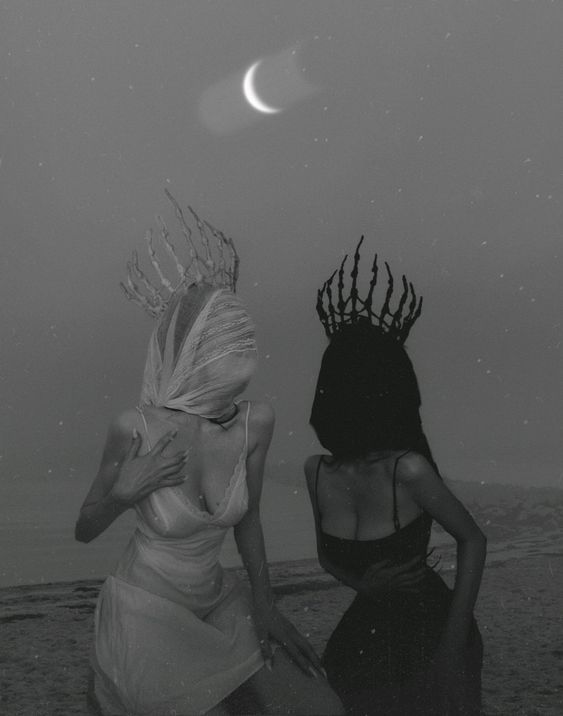 The Moon in astrology plays a crucial role in understanding our emotional responses and habitual behaviors, especially in times of stress, anxiety, or fear. By examining the Moon’s sign, house placement, and aspects in our birth chart, we gain valuable insights into our emotional patterns and how they may be linked to emotional deprivation. The Moon’s sign indicates our core emotional needs and how we instinctively respond to situations. For example, someone with a Moon in Aries might have a tendency to react with impulsiveness and assertiveness when feeling anxious, as they seek independence and self-sufficiency to counter emotional deprivation. The house in which the Moon resides in the birth chart represents the specific areas of life where our emotional responses are most prominent. For instance, if the Moon is in the 7th house, issues related to partnerships and relationships may trigger habitual behaviors stemming from emotional deprivation, such as codependency or fear of abandonment. Aspects formed by other planets to the Moon provide additional context. Challenging aspects like squares or oppositions can indicate inner conflicts related to emotional needs, potentially leading to compulsive behaviors. Harmonious aspects such as trines or sextiles may suggest a more easeful emotional expression.
The Moon in astrology plays a crucial role in understanding our emotional responses and habitual behaviors, especially in times of stress, anxiety, or fear. By examining the Moon’s sign, house placement, and aspects in our birth chart, we gain valuable insights into our emotional patterns and how they may be linked to emotional deprivation. The Moon’s sign indicates our core emotional needs and how we instinctively respond to situations. For example, someone with a Moon in Aries might have a tendency to react with impulsiveness and assertiveness when feeling anxious, as they seek independence and self-sufficiency to counter emotional deprivation. The house in which the Moon resides in the birth chart represents the specific areas of life where our emotional responses are most prominent. For instance, if the Moon is in the 7th house, issues related to partnerships and relationships may trigger habitual behaviors stemming from emotional deprivation, such as codependency or fear of abandonment. Aspects formed by other planets to the Moon provide additional context. Challenging aspects like squares or oppositions can indicate inner conflicts related to emotional needs, potentially leading to compulsive behaviors. Harmonious aspects such as trines or sextiles may suggest a more easeful emotional expression.
To determine if our reactions reflect emotional deprivation, we need to look for patterns in our emotional responses that point to compulsive tendencies such as:
Excessive Reliance: This can manifest as constantly seeking validation, comfort, or support from others to fill an emotional void created by perceived deprivation.
Clinging: Individuals with emotional deprivation tendencies may have a fear of abandonment and tend to cling to relationships or situations, even when they are no longer fulfilling or healthy.
Anxiousness: Anxiety may arise as a result of unresolved emotional needs, leading to a constant state of worry and insecurity.
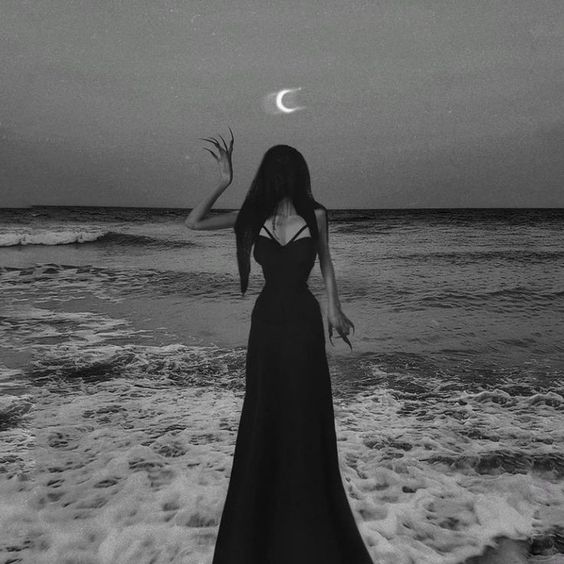 The Moon’s placement and aspects in the birth chart are essential because they reflect the sensitive aspects of our emotional selves. When these emotional needs are unmet or unsatisfied, they become heightened, leading to habitual reactions that attempt to compensate for this emotional deprivation. Understanding these patterns can help individuals work on personal growth, healing, and finding healthier ways to fulfill their emotional needs. Moreover, the lunar cycles, which symbolize the waxing and waning of emotions and desires, are deeply connected to the Moon’s placement. As the Moon travels through its phases, it can trigger emotional fluctuations and intensify the urge to address unsatisfied desires. The Moon in astrology serves as a powerful tool for self-reflection and personal growth, offering valuable insights into our emotional responses and habitual behaviors, particularly in times of anxiety and fear. By recognizing how the Moon’s sign, house, and aspects influence our emotional landscape, we can gain a better understanding of emotional deprivation and work towards more fulfilling and balanced emotional lives.
The Moon’s placement and aspects in the birth chart are essential because they reflect the sensitive aspects of our emotional selves. When these emotional needs are unmet or unsatisfied, they become heightened, leading to habitual reactions that attempt to compensate for this emotional deprivation. Understanding these patterns can help individuals work on personal growth, healing, and finding healthier ways to fulfill their emotional needs. Moreover, the lunar cycles, which symbolize the waxing and waning of emotions and desires, are deeply connected to the Moon’s placement. As the Moon travels through its phases, it can trigger emotional fluctuations and intensify the urge to address unsatisfied desires. The Moon in astrology serves as a powerful tool for self-reflection and personal growth, offering valuable insights into our emotional responses and habitual behaviors, particularly in times of anxiety and fear. By recognizing how the Moon’s sign, house, and aspects influence our emotional landscape, we can gain a better understanding of emotional deprivation and work towards more fulfilling and balanced emotional lives.
The Moon symboloizes our emotional undercurrents, and it can be where our dependencies reveal themselves, attachments form, and fluctuation of feelings occurs. The Luminary in one month travels through all twelve signs of the zodiac and has a close relationship to our fluctuating moods. According to Isabel Hickey, Cancer is ruled over by the Moon and it is ”The most subconscious of all the signs, everything being latent and hidden. Cancer is at the mercy of their moods one day up another day down, with difficulty cutting the umbilical cord that binds them to the past. The personality is an unlit room.” Astrology, A Cosmic Science: The Classic Work on Spiritual Astrology

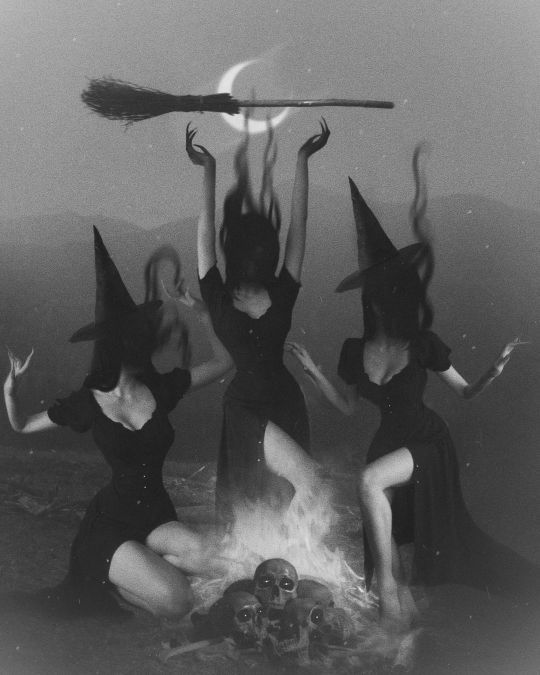 Describing the Moon often involves using words like “comforting” and “familiar” because it holds a special place in our collective consciousness. It’s a celestial body that has been a constant companion throughout human history, a gentle, reassuring presence in the night sky. Just as we find comfort in its soft glow during the darkness of night, it’s normal for individuals to experience occasional bouts of anxiety. When we use the term “moon hunger,” we’re describing an overwhelming and all-encompassing craving for a deep and essential connection to something we profoundly need in our lives. This can manifest as an unhealthy fixation or obsession with whatever temporarily provides fulfillment for those needs. Such an obsession can lead to detrimental behaviors, including neediness, regression, and clinginess. Much like a celestial body that exerts its gravitational pull on tides, a person consumed by moon hunger might exert a similar pull on those around them, making it challenging for others to maintain healthy boundaries.
Describing the Moon often involves using words like “comforting” and “familiar” because it holds a special place in our collective consciousness. It’s a celestial body that has been a constant companion throughout human history, a gentle, reassuring presence in the night sky. Just as we find comfort in its soft glow during the darkness of night, it’s normal for individuals to experience occasional bouts of anxiety. When we use the term “moon hunger,” we’re describing an overwhelming and all-encompassing craving for a deep and essential connection to something we profoundly need in our lives. This can manifest as an unhealthy fixation or obsession with whatever temporarily provides fulfillment for those needs. Such an obsession can lead to detrimental behaviors, including neediness, regression, and clinginess. Much like a celestial body that exerts its gravitational pull on tides, a person consumed by moon hunger might exert a similar pull on those around them, making it challenging for others to maintain healthy boundaries.
Conversely, a person in high psychological health can be compared to a Moon that radiates its light with confidence and grace. They encourage independence, assertiveness, and love in their interactions. Just as the Moon reflects sunlight to illuminate the night sky, individuals who have found emotional balance can light up their own lives and the lives of those around them. This emotional radiance can lead to a sense of well-being and serenity, just as the Moon’s glow can create a serene atmosphere on a tranquil night. To achieve this emotional well-being and inner radiance, it’s crucial to prioritize self-care and self-discovery. Start by identifying what causes stress or unease in your life, much like examining the Moon’s astrological characteristics. Explore your Moon sign, planetary aspects, and house placement in your birth chart. This self-reflection can help you better understand your emotional needs and triggers. Once you’ve identified your stressors, take proactive steps to alleviate them. This might involve setting boundaries, seeking therapy or counseling, practicing mindfulness, or engaging in activities that bring you joy and emotional fulfillment. By addressing your own needs first, you can ensure that you are emotionally equipped to navigate life’s challenges and form healthier connections with others.
In summary, our relationship with the Moon is deep and symbolic, and it can offer valuable insights into our emotional well-being. Just as the Moon waxes and wanes in the night sky, our emotional states can fluctuate, but by tending to our emotional needs and fostering a healthy sense of self, we can shine with the same radiance and serenity as the Moon itself.
